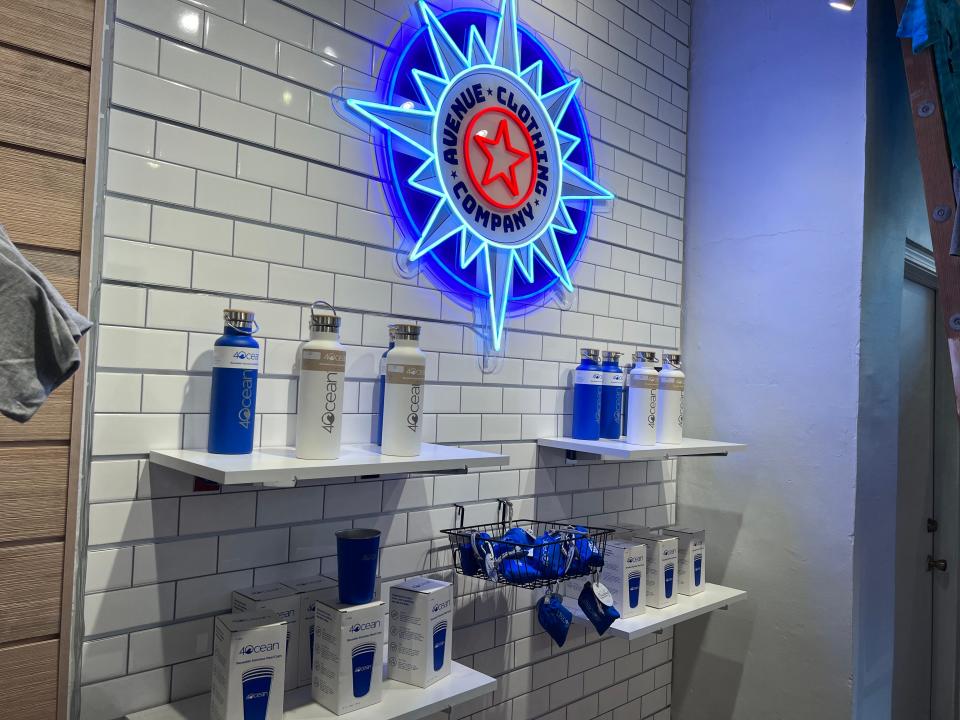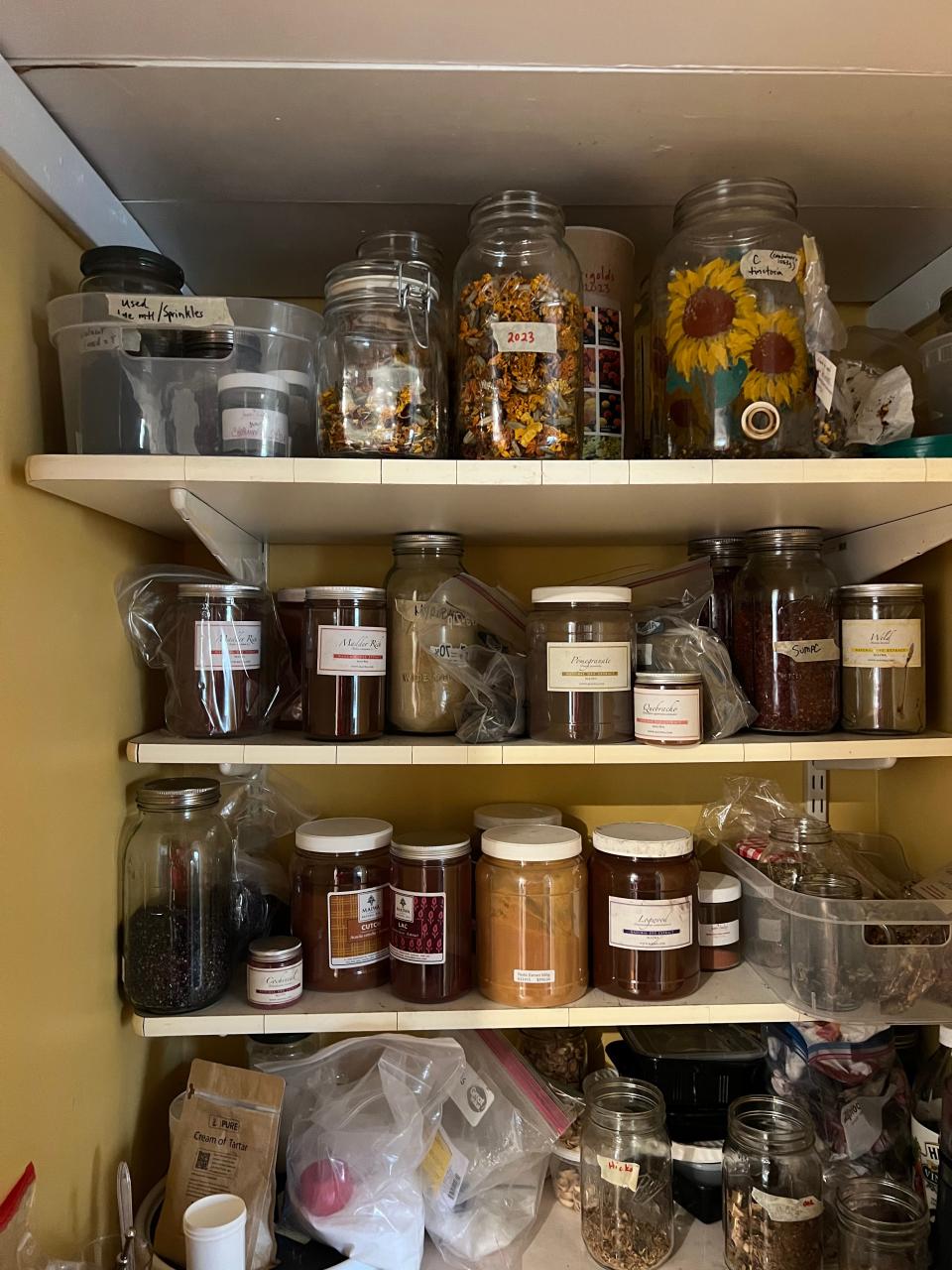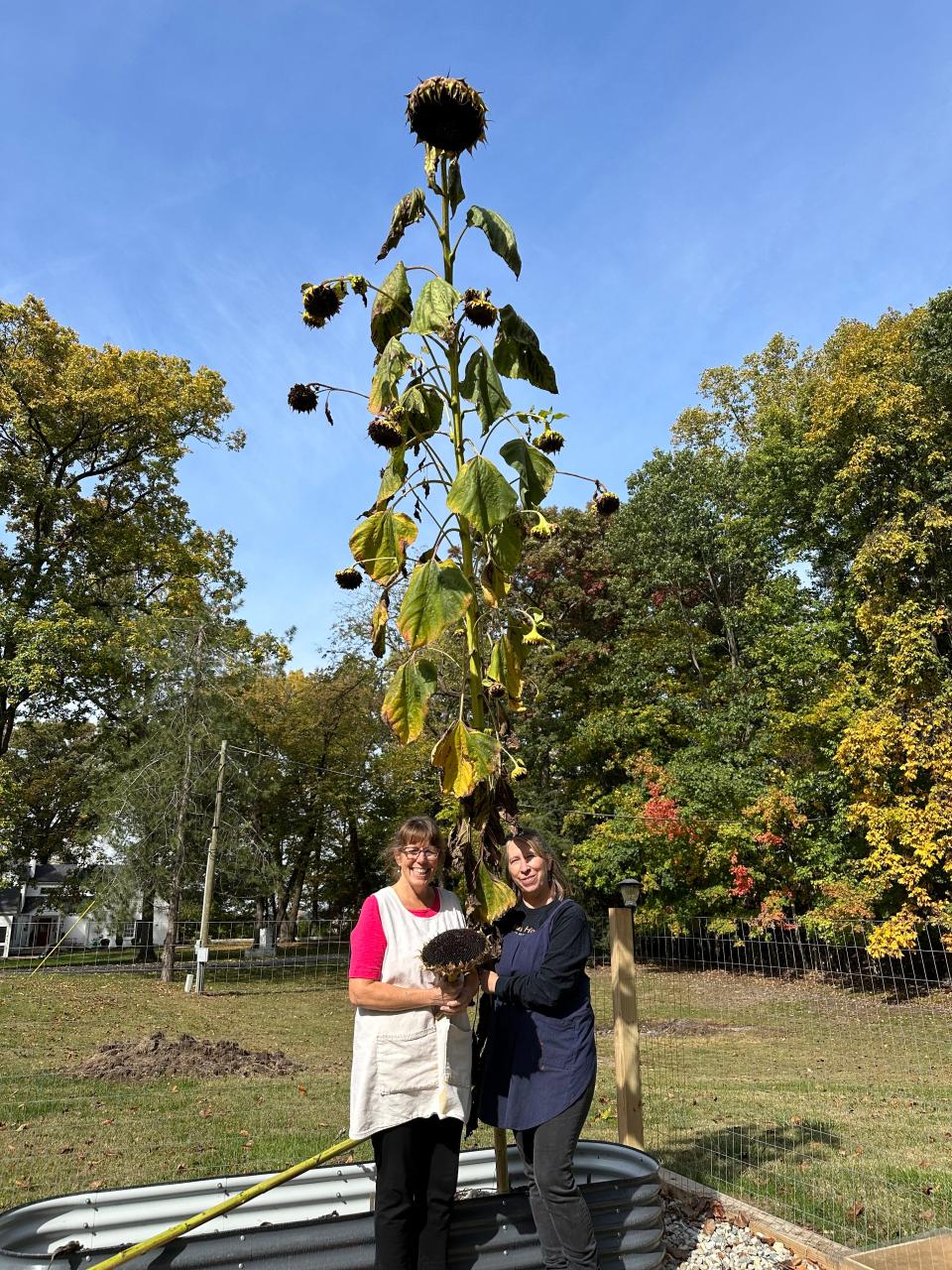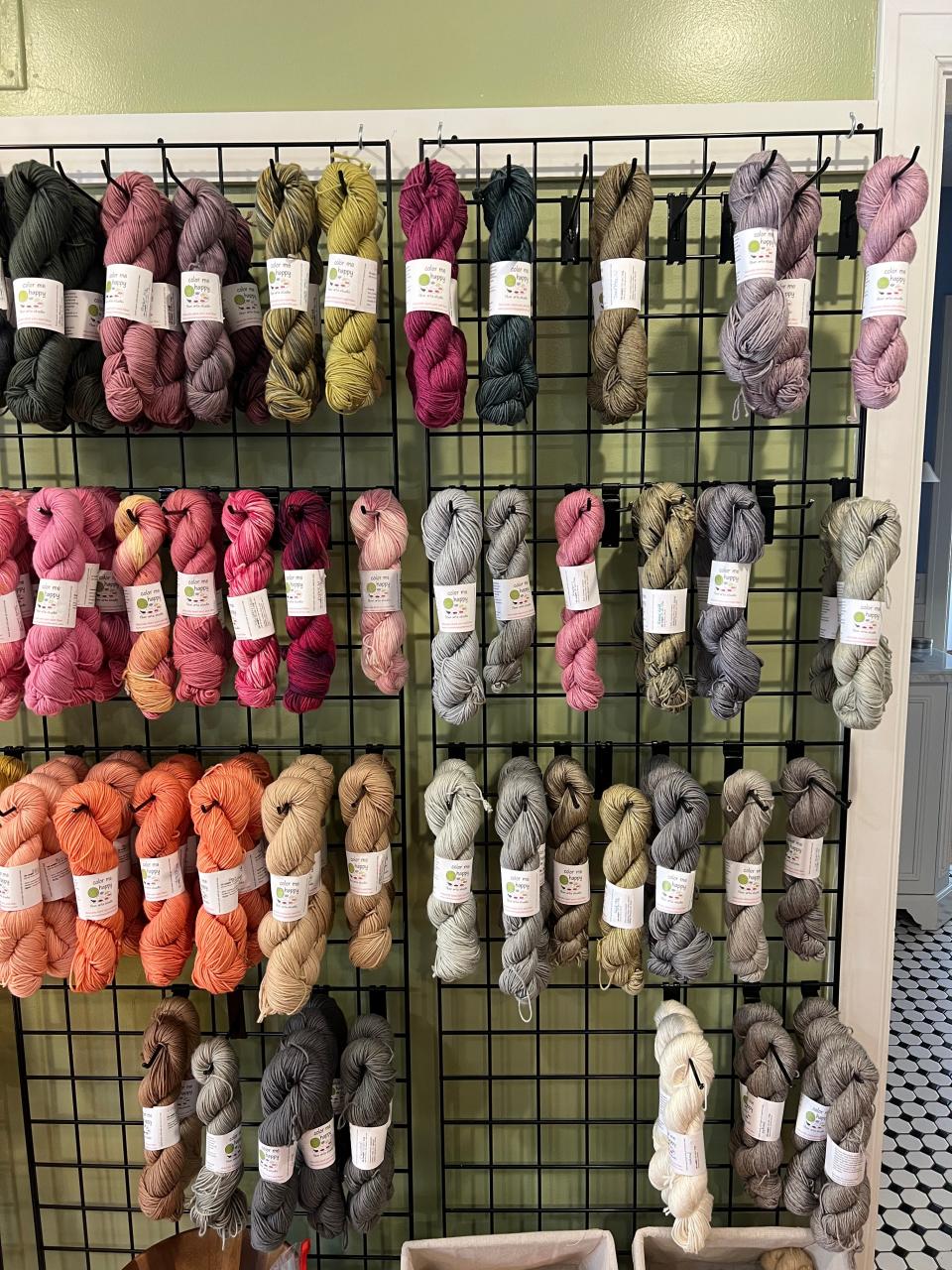'Greenwashing': The meaning of true eco-friendly clothing, fabrics
Editor's Note: The following is part of a class project originally initiated in the classroom of Ball State University professor Adam Kuban in fall 2021. Kuban has continued the project, including this fall semester, challenging his students to find sustainability efforts in the Muncie area. The students pitched their ideas to Deanna Watson, editor of The Star Press, Journal & Courier and Pal-Item.
MUNCIE, Ind. – The concept of “greenwashing” involves unsupported claims made by brands to deceive consumers into believing that their products are more environmentally friendly than they actually are. For example, clothing companies will often use words such as “eco-friendly,” “natural” or “organic” to do so.
While some brands are truthful about where their dyes, materials and prints come from, not every brand is. Factors like responsible sourcing, usage of natural dyes and ethical manufacturing are all pieces of the big puzzle that is sustainable shopping, and this puzzle could potentially impact your health and the economy overall if not navigated properly.

Many companies have been guilty of greenwashing and have been called out for it, including fast fashion brands such as H&M and Zara.
H&M released a line in 2019 called “Conscious,” promoting it as a sustainable effort, but it faced criticism for lack of proof. On the flip side, there are brands that say they are “eco-friendly,” but they are putting in the work such as Avenue Clothing Company in Indianapolis.
Avenue Clothing Company is a recently opened business in Indianapolis run by Jeni and Mick McDaniel. This business was a passion project for both, and Mick has dedicated 19 years to a career in renewable energy and solar power. Their mission states, “If life can truly imitate art — then so can fashion. But it must achieve more than just status as art if it’s going to contribute towards a healthier planet.” They make conscious efforts to source American-made clothes and include product from ethical and famously sustainable brands like 4Oceans and Rescued Wine Candles.

Rescued Wine makes candles out of recycled beer and wine bottles, and 4Oceans uses 95% post-consumer recycled glass beads as well as a plastic cord and recycled stainless steel charms.
This kind of brand transparency is what makes them credible. There are also specific certifications you can get from companies like Cradle to Cradle or JUST that verify if the clothes you’re buying are sustainable as well.
According to Mick McDaniel, only about 4% of the clothes consumers buy are made in America. Most of the clothes in your closet probably have “made in” tags from developing countries such as Bangladesh, China and Cambodia.
Robert Koester, the director of the Center for Energy Research, Education, and Service and professor of Architecture at Ball State University, said that American-made clothing is better because, “when you buy clothes made in America, there’s a shorter loop in the circular economy.”
Koester’s “shorter loop” reference means it cuts out the non-sustainable means of transportation that release CO2 and vapor trails that contribute to global warming, according to an EU study led by Stephen Arrowsmith on airline contrails. A study by the United Nations backed this up as well, stating that, “Shipping and aviation account for 5% of global carbon emissions.”
Sourcing product locally prevents more CO2 from getting into the air and into our waters.
Related to personal health, Michelle P. Salyers, a professor in Clinical Psychology at IUPUI, owns a natural dye company in Fishers, Indiana, called Color Me Happy Fiber Arts Studio.

She and her business partner, Linda Williams, naturally dye their own yarn and fabrics with products they grow in their own gardens with everything from marigolds to indigo to oakwood.

They also reach out to Red Hill for natural products and foods to dye with. They don’t just dye fabrics plain colors either; you can make all sorts of patterns on fabrics through something called eco-printing, which is using leaves and plants to add texture to a fabric.
According to a study done at Indiana University in Bloomington, “It’s estimated that a single mill can use 200 tons of fresh water per ton of dyed fabric.” The manufacturing and washing processes of synthetic fabrics such as polyester also release microfibers into water.
Natural dyeing is a great way to tell if a brand is sustainable, and it only takes a few days for the fabric to dye this way. Brands being transparent with consumers is the best way to avoid greenwashing. Buying sustainable clothing can be more expensive due to raw materials being used to make the products, but brands like Avenue Clothing Company demonstrate that it doesn’t have to break the bank to help the planet — their products sell as low as $22. Rather than overlooking tags and dyes, consider how it’s feasible to close the environmental “loop” by reducing, reusing, and recycling your products.
This article originally appeared on Lafayette Journal & Courier: Greenwashing: The meaning of true eco-friendly clothing, fabrics

